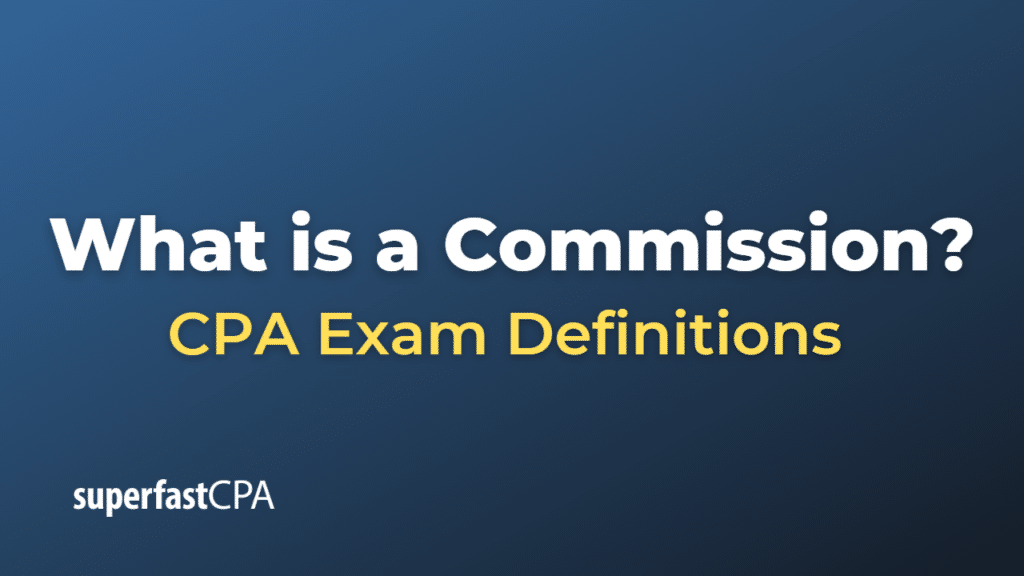Commission
A commission is a form of compensation that is typically paid to salespeople, brokers, or agents for their services in facilitating a transaction or generating revenue for a company or individual. Commissions are usually calculated as a percentage of the total value of the transaction or the revenue generated, and are paid in addition to, or instead of, a fixed salary or hourly wage.
Commissions are commonly used in industries such as real estate, financial services, insurance, and sales, where the performance of the salesperson, broker, or agent has a direct impact on the revenue generated. The commission structure serves as an incentive for these individuals to perform better, as their earnings are directly tied to their success in closing deals or generating sales.
Some common types of commissions include:
- Flat-rate commission: A fixed percentage of the transaction value or revenue generated is paid as commission, regardless of the volume or size of the transaction.
- Tiered commission: The commission rate increases as certain sales thresholds or targets are met, providing an incentive for salespeople to achieve higher levels of performance.
- Graduated commission: The commission rate varies depending on the specific product or service being sold, or the complexity of the transaction.
- Split commission: In cases where multiple agents or brokers are involved in a transaction, the commission may be split among them according to a predetermined agreement.
Commissions can be an effective compensation model for motivating and rewarding high performance, but they may also create pressure to prioritize short-term sales over long-term customer relationships or ethical considerations. It is essential for companies using commission-based compensation to carefully design and manage their commission structures to align with their overall business objectives and maintain a balance between incentivizing performance and promoting ethical behavior.
Example of a Commission
Let’s consider a hypothetical example to illustrate the concept of commission in a real estate context.
Imagine Susan is a real estate agent who works for a real estate agency. She helps clients buy and sell residential properties. Susan’s compensation structure is commission-based, meaning she earns a percentage of the total value of each transaction she facilitates.
Suppose Susan helps a client sell their house for $500,000. Her commission rate is 3% of the transaction value. In this case, Susan’s commission would be calculated as follows:
Commission = Transaction Value × Commission Rate
Commission = $500,000 × 3%
Commission = $15,000
Susan would earn a $15,000 commission for successfully facilitating the sale of her client’s house. If she were to help another client purchase a house for $400,000 with the same commission rate, her commission for that transaction would be:
Commission = Transaction Value × Commission Rate
Commission = $400,000 × 3%
Commission = $12,000
In this case, Susan would earn a $12,000 commission for assisting her client in purchasing a house. Her total earnings are directly tied to her success in closing deals and the total value of the transactions she facilitates.
This example demonstrates how commission-based compensation can serve as an incentive for salespeople, brokers, or agents to perform better, as their earnings are directly linked to their success in generating revenue or closing deals.













